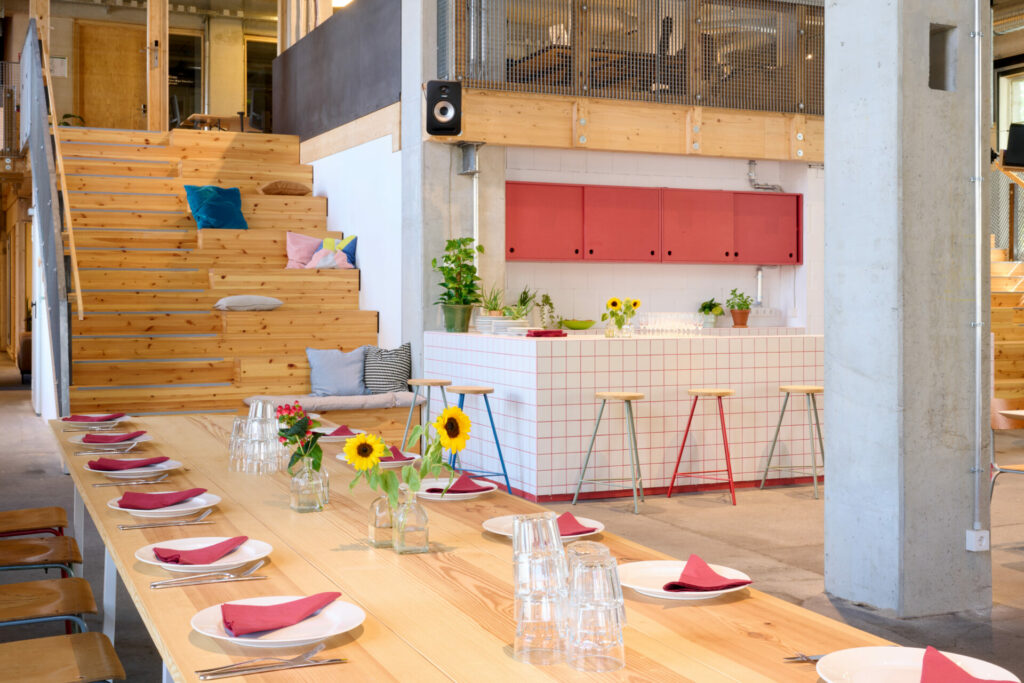What is a sustainable coworking space?
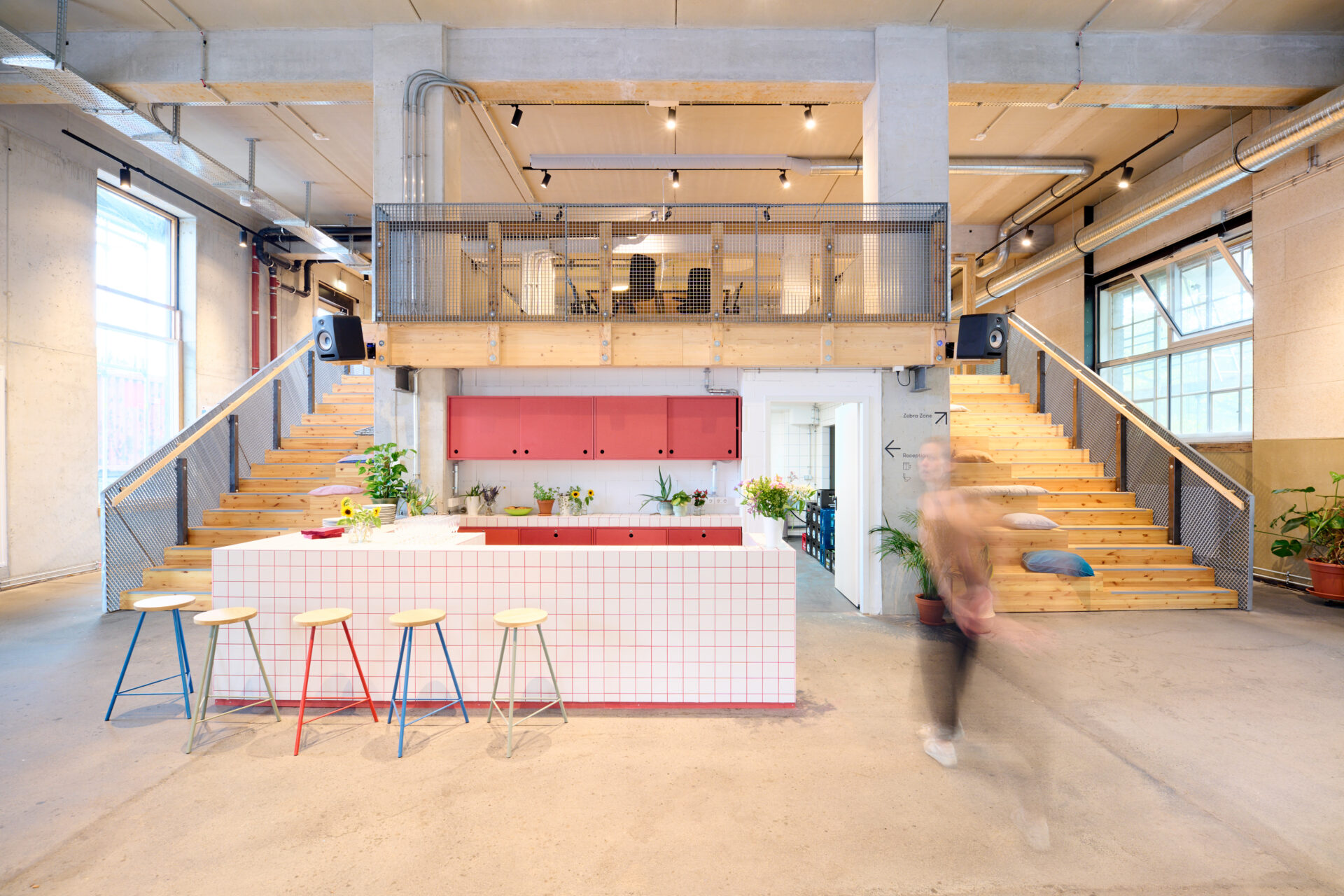
In recent decades, sustainability has become a fundamental principle driving societal change, across a myriad of different sectors. Within the realm of coworking spaces, this ethos is gaining significant traction as changemakers seek to align their values with the places they work from.
In this blog, we’ll explore how a sustainable coworking space is about more than just its eco-friendly operations – it’s about a dedication to sustainable design, resource-sharing, and social responsibility.
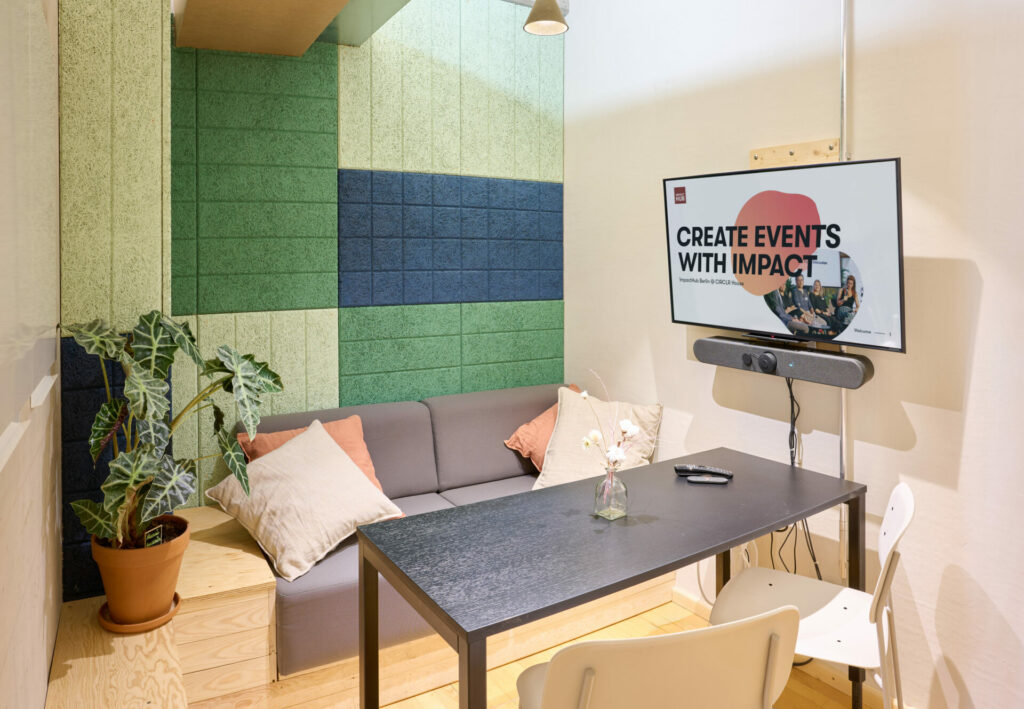
Sustainable design
Let’s start off with the physical space. A sustainable coworking space is not only one that embraces green technologies but that is also created with sustainability and community at its heart.
Impact Hub Berlin, built within the historic Kindl brewery in Berlin-Neukölln, is an example of how the physical space can be the manifestation of circular construction principles. Designed by the architectural studio LXSY ARCHITEKTEN, the 3.500 sqm space won FRAME magazine’s “Co-Working Space of the Year” award in 2023. According to the judges, “the interior design reflects how the preservation of the existing building and the use of re-used, renewable and recycled materials can transform tomorrow's construction in a positive way.”
That’s because around 70 percent of all the materials and products used during the construction of the space are repurposed, recycled or natural. As you walk through the space, you can notice so many elements have been taken from other buildings – from grates to handrails to windows. Some elements, like water taps and walls, were kept exposed so that the space can be changed and adapted to future needs or even be repurposed after disassembly for future use.
The Impact Hub Berlin coworking and office space was recently featured in Bloomberg’s documentary, An Optimist’s Guide to the Planet, together with our community members Concular. Co-founder and CEO of Concular, Dominik Campanella told host the show’s host Nikolaj Coster-Waldau that our design and methods of construction are great examples of how circular systems contribute to a holistic ecosystem.

“Impact Hub is not only our home: it is a place that shows how construction should work today. 80% of materials are coming from reclaimed sources and it is built-in in a way that all of it can be used in another life,”. Said Campanella, whose startup is dedicated to transforming the building sector for the circular economy,
It’s not just the physical characteristics that make a sustainable coworking space, it’s also how sustainably it runs. At Impact Hub Berlin, the building uses a mix of conventional radiators and a ventilation system with heat recovery. There are also special ceiling panels for heating on the upper floors. A smart heating system controls the radiators and the energy concept is shared with the neighbouring building, using heat pumps with long-term and short-term storage units to ensure a sustainable heat supply based on as much renewable energy as possible.
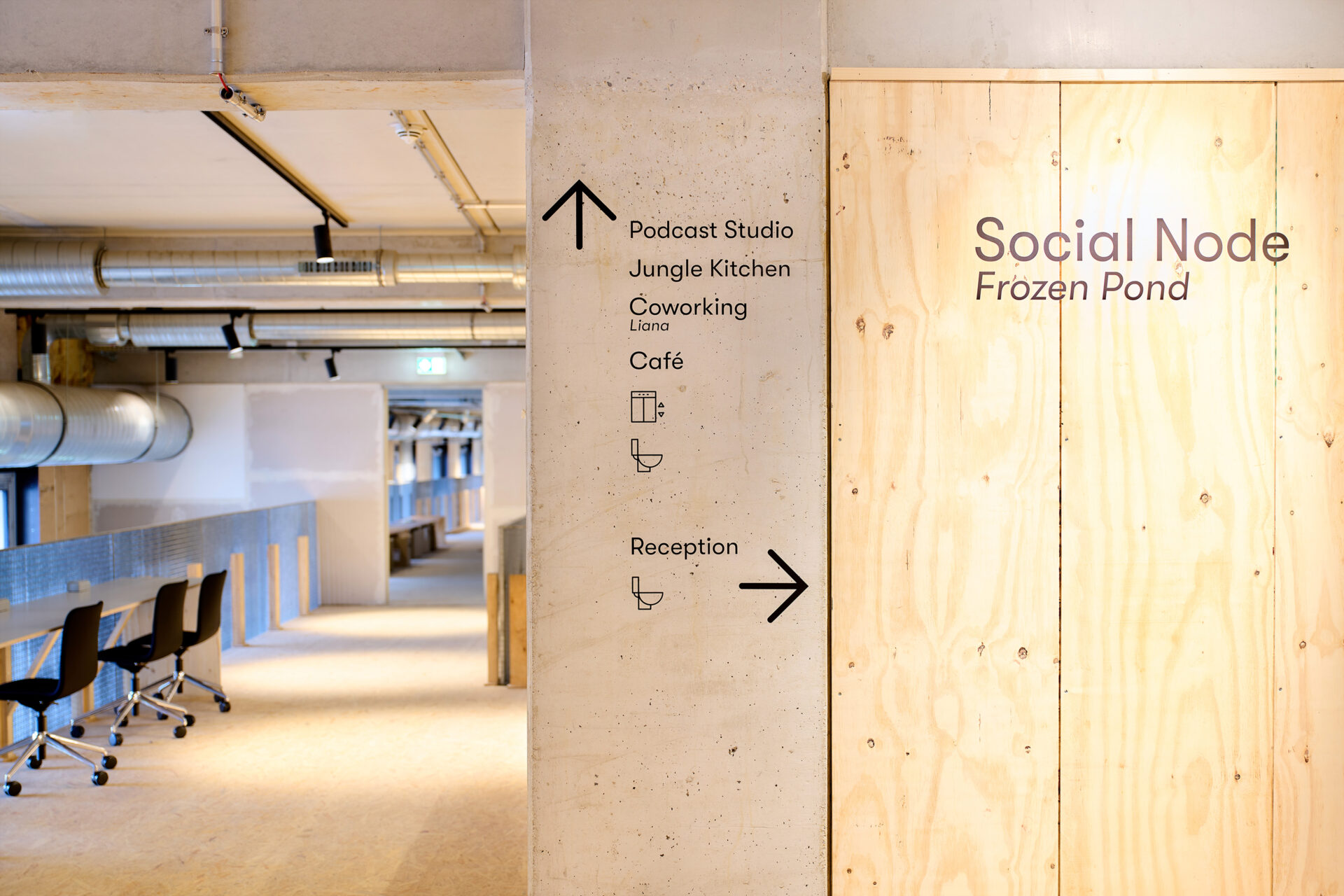
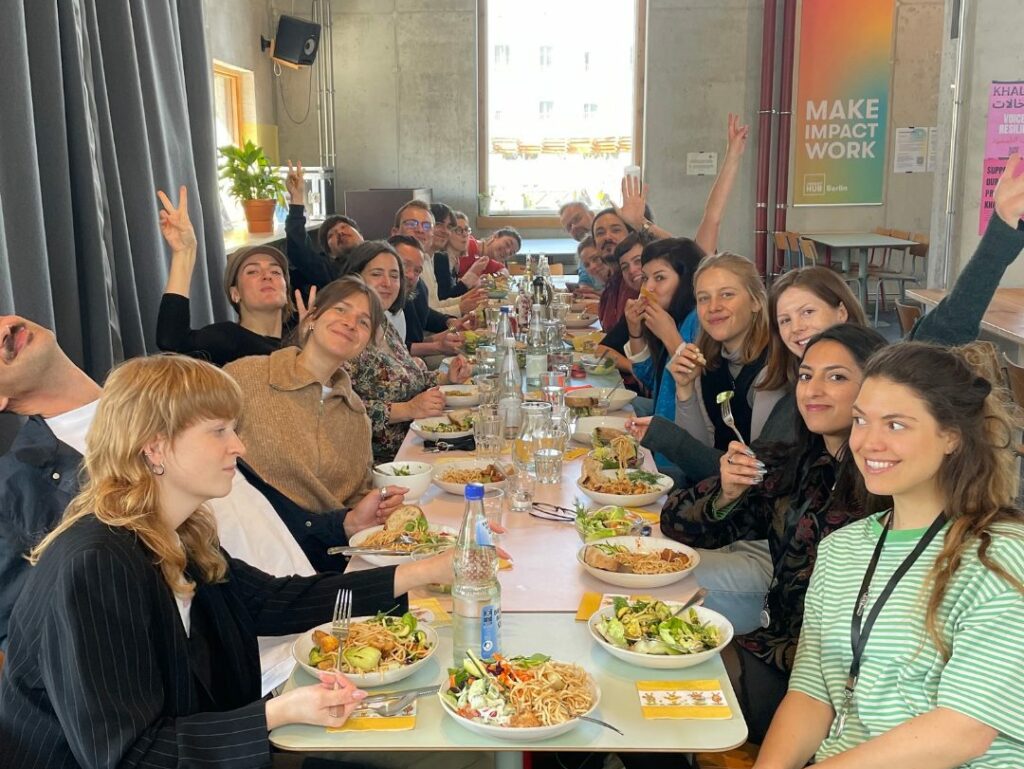
Being sustainable also means reducing food wastage, which is why the space offers a fully equipped kitchen for members to store, reheat, or prep their meals from home. Bringing in your own lunch can help to reduce food waste in your home and so members are encouraged to use the kitchen as they need.
A low waste café called The Loop is available at the space, for that caffeine fix or nutritious lunch option. The hub also hosts regular community lunches and coffee and cake sessions somembers can feel more connected to the space and each other.
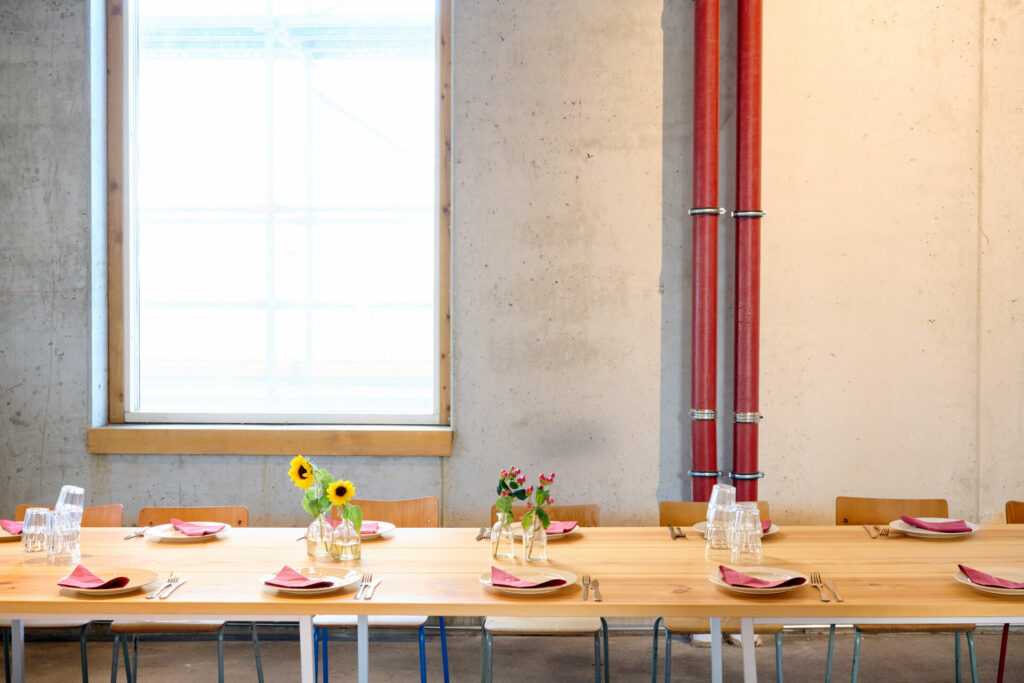
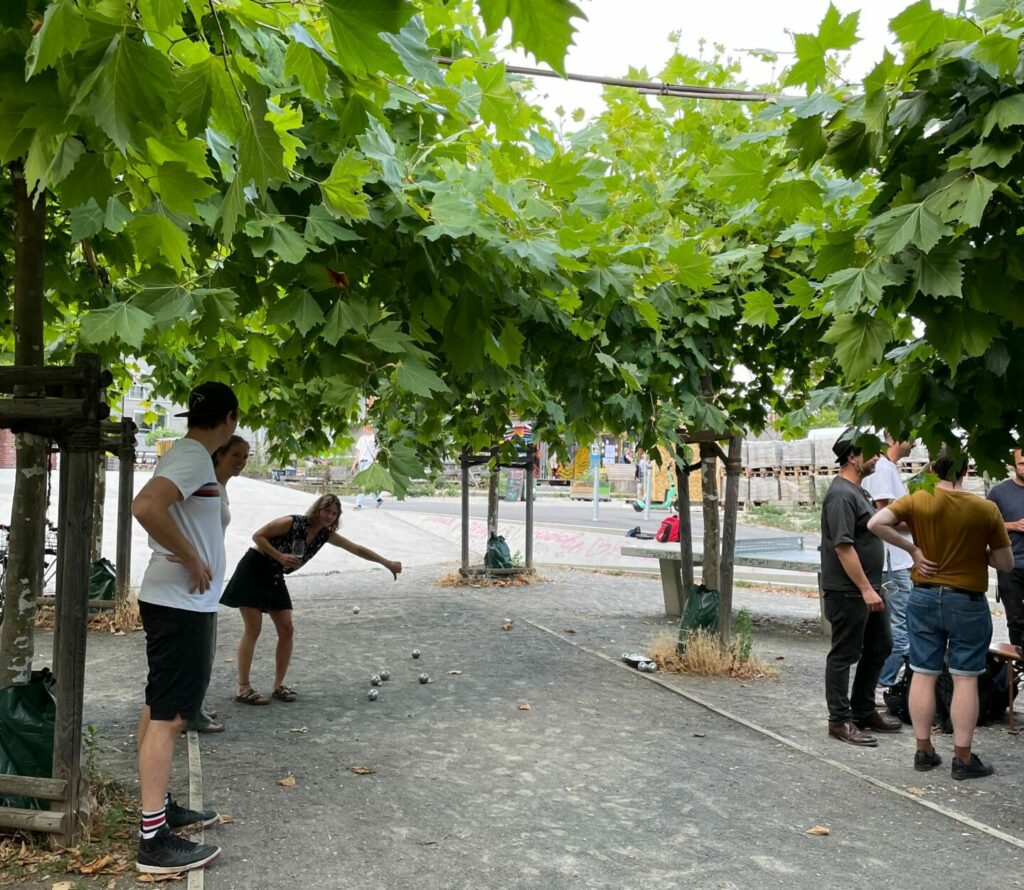
Cities built for a sustainable coworking space
A dedicated sustainable coworking space also often operates and partners within a city that also makes sustainability efforts. This could be one that celebrates and strengthens its public transport system, offers eco-friendly commute options, and/or has green initiatives.
Impact Hub Berlin operates within Germany’s capital city of Berlin, which has the reputation of being a “green city”, largely due to its combination of environmental policies and an expressed commitment with sustainability. Known for its extensive network of parks, forests, and green spaces, Berlin boasts an abundance of recreational areas that promote biodiversity and improve air quality. The city also offers countless opportunities for 200+ Green Tech startups. These changemakers benefit from a vibrant and supportive business environment, with access to funding, academic research, and a culture that encourages experimentation and collaboration.
A sustainable coworking space shouldn’t just operate with a city, it should also support and contribute to its sustainability goals. At Impact Hub Berlin, we believe impact requires collective action, which is why we are honoured to be part of green tech initiatives, such as of the nawi.berlin project, which aims to provide support and navigation for Berlin businesses on their green transformation journey. Alongside the Bundesverband nachhaltige Wirtschaft BNW e.V. and the Social Entrepreneurship Network Germany, Impact Hub Berlin bring this vision to life by providing sustainable businesses access to our impact community and coworking space.
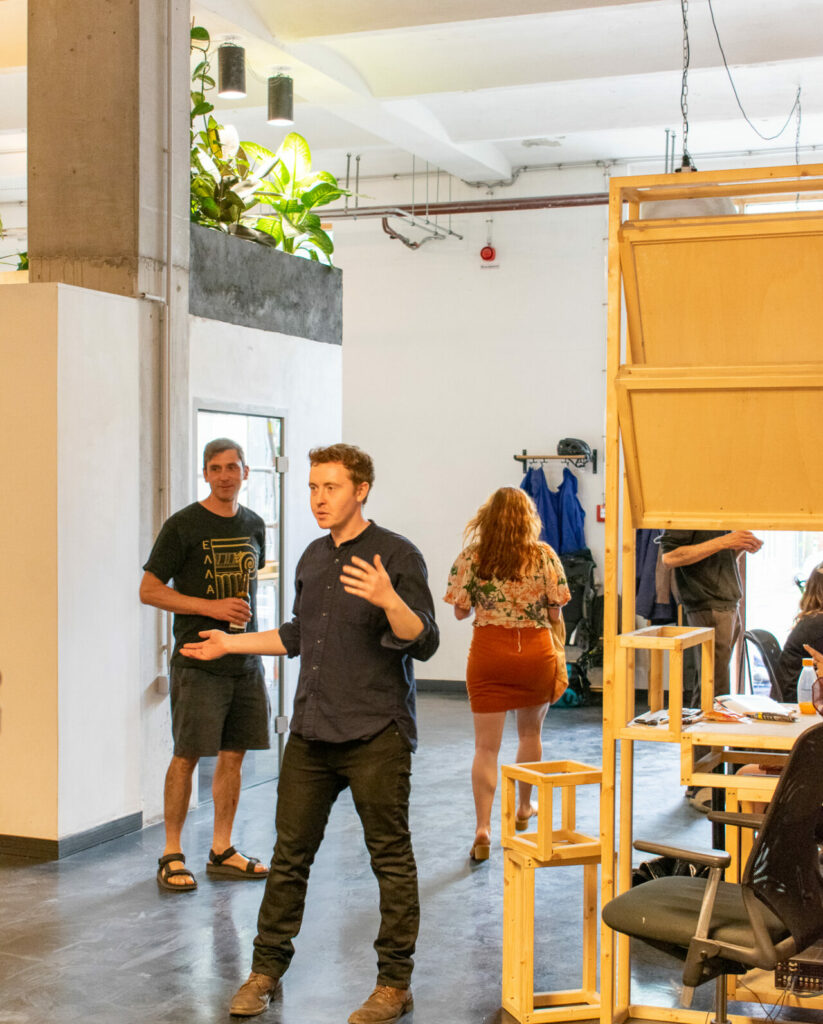
Sustainable ecosystem
Outside of external partnerships, sustainable coworking spaces are often committed to their own impact-driven values. This can often be expressed in the resources and tools they provide their members - from programmes and seminars to networking events with other sustainably-focused innovators.
At Impact Hub Berlin, we’ve set out to create thriving innovative environments to connect people and enable collaboration across organisations, cultures and generations to solve current challenges. Our impact ecosystem model is based on four key focus topics — Circular Economy, Green Tech, Sustainable Food, and Diversity, Equity and Inclusion – and aims to increase environmental and social impact. We do this by facilitating various activities for the agents of change within our ecosystem, including monthly events where innovators working within each ecosystem come together to share knowledge. We release regular trend reports on impact topics so our community can stay ahead of the curve. We hold investor and partnership matchmaking events to kickstart partnerships and we design and implement tailored venture support programmes such as incubators and accelerators.
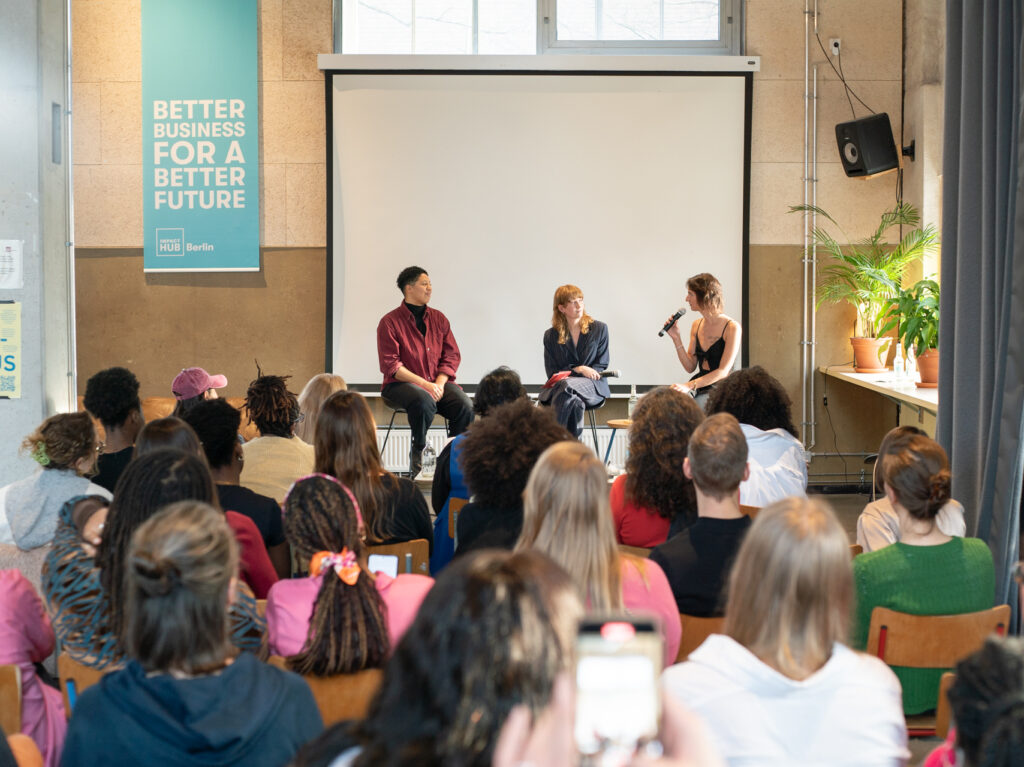
Sustainable mindset
The UN World Commission on Environment and Development defines sustainability as “meeting the needs of the present without compromising the ability of future generations to meet their own needs.” However, sustainability is often misunderstood as being primarily associated with the environment, conservation, and energy efficiency. It is just as integral to building an inclusive and equitable society from which future generations can thrive.
When you’re searching for a coworking space that’s sustainable, it’s a good idea to look at the diversity of its membership base and the way it facilitates collaboration and knowledge sharing within its community. It’s also important to see how it builds community and inclusivity. These are important factors when building a sustainable space where impact innovators can feel enabled to build towards a sustainable future.
Our members are our key focus when it comes to building a sustainable coworking space. We are committed to facilitating a community-driven coworking space, we help our members drive impact, stay motivated, share knowledge and resources, and build sustainable growth and development within their sectors.
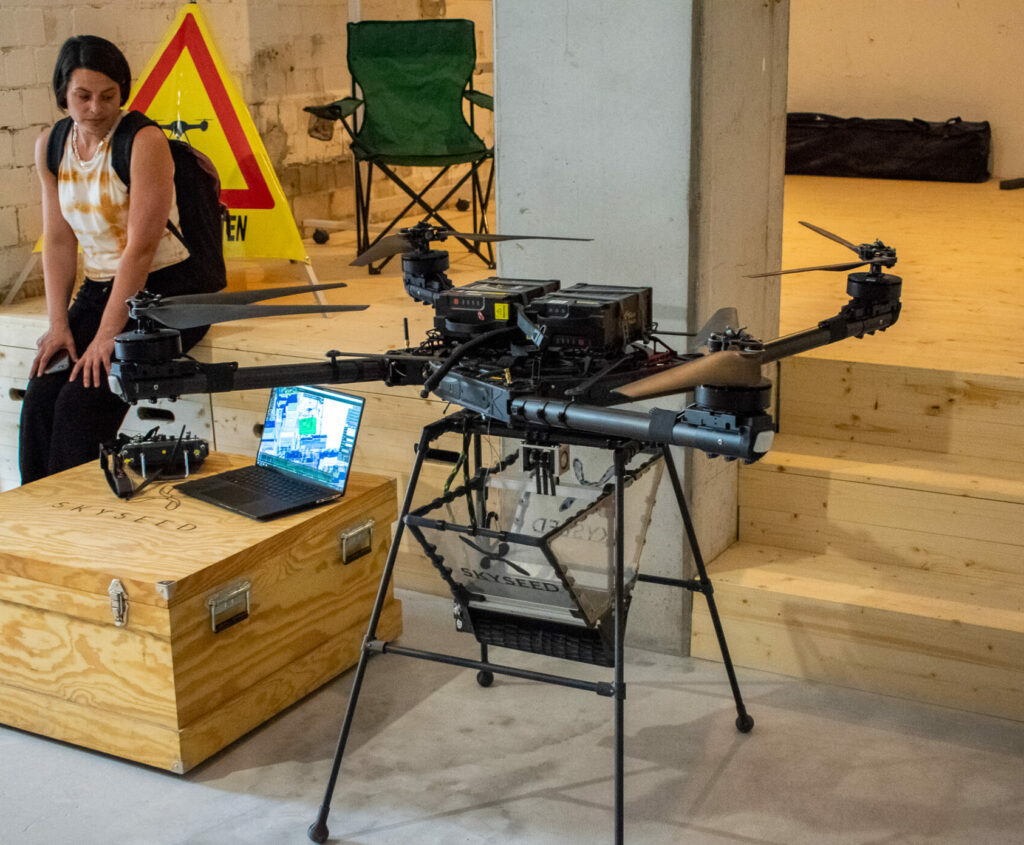
Social responsibility
Sustainable coworking spaces are not just about the physical workings of a space, but also the work that’s being done within that space.
Our community of innovators is working towards sustainable impact goals across a wide range of sectors. For example, Skyseed, a company that’s working to deliver smart and sustainable reforestation across Europe using drones and pelleted seeds, and Crowd Impact, a startup dedicated to advancing the ecological transformation of companies in the cultural sector.
A sustainable coworking space, for us, is one that not only celebrates the work of its members but also finds ways to support and work alongside them. In 2022, we held 11 programmes for impact-driven entrepreneurs to collaborate and partner with key leaders in their sector, including Impact Accelerator and Feeding the City.
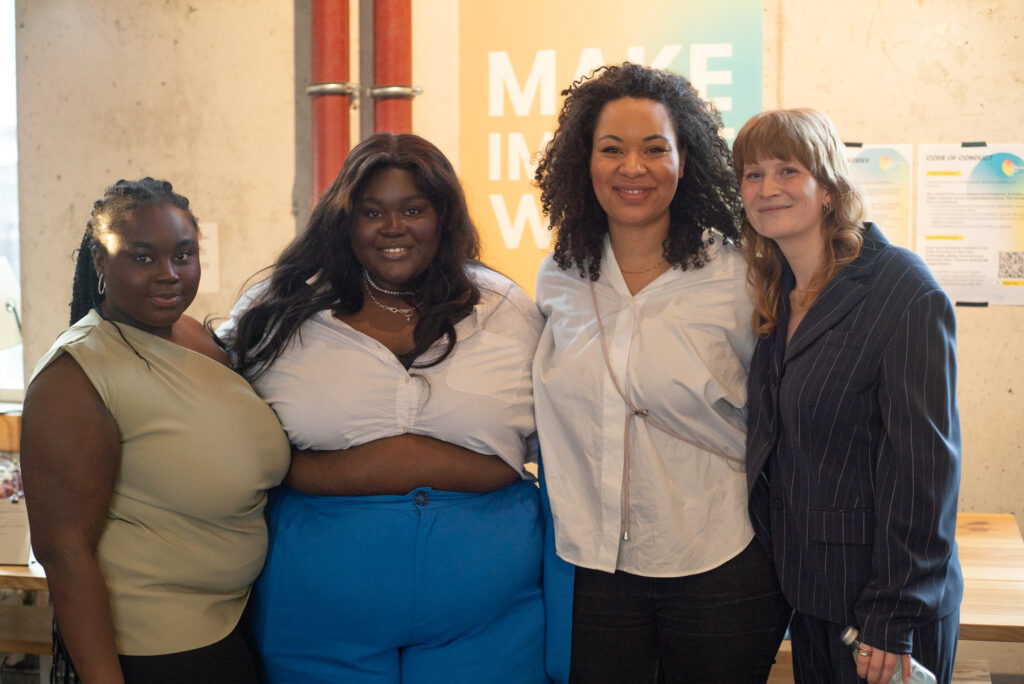
We’re also committed to promoting DEI and helping FINTA* business flourish through programmes such as our Empower Now programme. The programme is designed by and for FINTA* founders who are marginalised and /or face (multiple) discrimination and working towards a more inclusive, equitable and participatory society.
At Impact Hub Berlin, we provide support to our community, from coaching through to consultancy. We partner with industry experts such as Miele and Bethmann Bank to help entrepreneurs bring their sustainable solutions to life.
Concular’s Dominik Campanella said operating out of our coworking space not only provided sustainable facilities but also the support and network of changemakers who have the same values and goals.

If you’re working on building a sustainable future, then finding a coworking space that not only shares your values but also supports your journey is crucial. If you’d like to join our Impact Hub Berlin community and be part of a collaborative space that celebrates your ideas, then we’d love to hear from you. Join our community and be part of the sustainable movement towards positive change today!
Become a member!